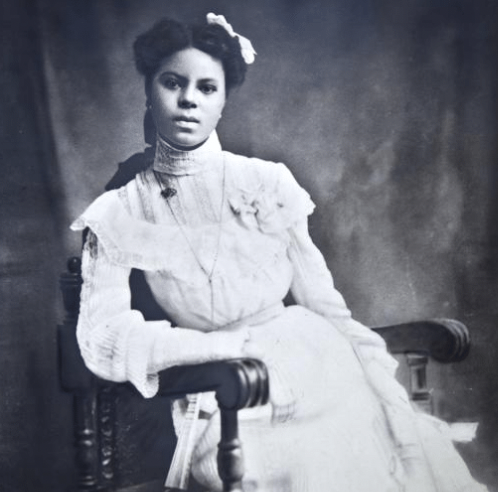Uncovering the story of Lucile Berkeley Buchanan: the first Black woman to graduate from CU
The remarkable story of Lucile Berkeley Buchanan was unveiled by Polly McLean through years of research, dedication and perseverance.
For decades, the University of Colorado Boulder believed that the first Black woman to graduate from CU was in 1924 instead of 1918. Polly McLean, an associate professor of media studies at CU, corrected the university when she discovered Lucile Buchanan’s story.
In 2001, McLean was teaching a class in the women and gender studies department and created a project where her students would report on the history of prominent Black women in Boulder. McLean went to the Heritage Center at Old Main to look for more information on Black alumni and was given a newspaper article from the Rocky Mountain News that described Buchanan as the first Black woman to graduate from CU. This led McLean to further investigate Buchanan’s life during her youth and adulthood.
“She lived a life filled with intellectual and demographic diversity. She was adamant that education for African Americans was the tool for social justice,” said McLean. “Being born of parents who were enslaved, Lucile saw education connected to freedom.”
Ruth Cave Flowers was known as the first Black woman to graduate from CU. For eight years, McLean gathered information needed for her book as she interviewed those connected with the Buchanans, visiting Virginia plantations, archives and family members.
Buchanan graduated from Colorado State University in 1905 and later studied German at CU Boulder. Her niece recounted the day of her aunt’s graduation to McLean. According to McLean’s book, 43% of the graduates in 1918 were women.
Buchanan was prohibited from walking across the stage by the university during the graduation ceremony. “When I interviewed her niece, I was told that Lucile was sitting waiting for her name
to be called. That a classmate came up to her and said, ‘I’ll be your partner, Lucy,’” said McLean. “Then placed Lucile’s diploma in her hand and disappeared. I can only surmise that this student did not on her own accord decide to accept Lucile’s diploma.”

After receiving her degree from CU, she taught at Lincoln High School in Missouri during the 1920’s. She founded the Observer, the school’s student newspaper.
Today, prominent leaders of the university recognize the injustice that occurred, including Chancellor Philip DiStefano and Patrick O’Rourke, the executive Vice Chancellor and Chief Operating Officer. DiStefano approved the renaming of the education building in 2021 after Buchanan and she is pictured on the entrance of the Center for Academic Success and Engagement.
“Though she graduated from CU Boulder more than a century ago, Lucile Berkeley Buchanan continues to serve as an inspiration to our campus community thanks to the research of CMCI Associate Professor Polly McLean. An important lesson we can take from Buchanan’s story during Women’s History Month and year-round is that it is not enough to provide someone with the opportunity to study at CU Boulder,” said Chancellor Philip DiStefano.
“We must also value and promote a sense of belonging, friendship, mentorship, support and inclusion as critical elements that enable our students—and our staff and faculty—to thrive and succeed,” said DiStefano.
O’Rourke said he learned about Buchanan’s story when McLean accepted Buchannan’s diploma on her behalf in 2018.
“Lucile’s story is an important part of CU’s history, not just because she was the first Black woman to graduate from CU Boulder, but because CU Boulder failed to treat her with the dignity and respect that she deserved,” said O’Rourke. “Her achievement is something the campus should have honored in 1918, as she earned her degree and deserved to be celebrated.”
McLean worked with Dr. Keyana Simone and four undergraduate students to create a scholarship to honor Buchanan’s memory called “The Lucile Berkeley Buchanan Scholarship.” This scholarship is through the women and gender studies department. According to data reports from CU Boulder, first generation college students who enrolled at CU in the fall and summer of 2021 included 6,653 people in the cohort and there was a 94.7% retention rate.
In 1989, Buchanan passed away and was buried in an unmarked grave. Frederick John Walsen heard about her death in the newspaper and decided to help Buchanan’s niece get a tombstone for her aunt.
“In reality, the campus will always be changing and what it will mean for us to be diverse will continue to change. And as new opportunities arise, we’ll have to make sure they are equitably available across a diverse population,” said O’Rourke. “Our challenge is to continuously get better and not think that the work of creating a truly diverse and inclusive campus will ever be finished.”

